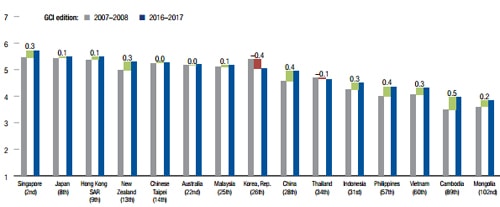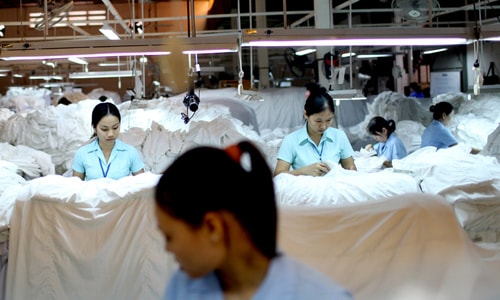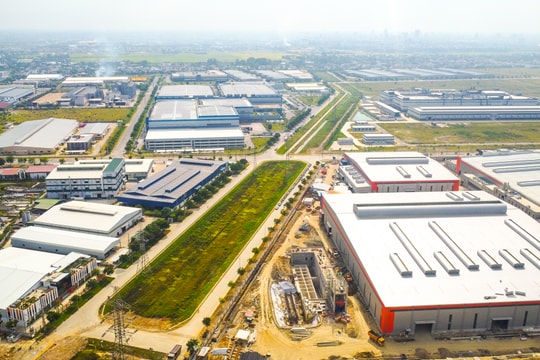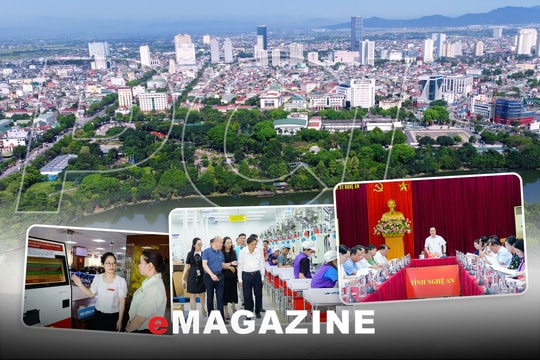Vietnam's global competitiveness ranking falls
Although having a slightly higher score than last year, Vietnam ranked 60th out of 138 economies evaluated by the World Economic Forum (WEF), compared to 56th out of 140 in 2015.
This information was given in the Global Competitiveness Report 2016-2017. In Southeast Asia, Vietnam ranked 6th, after Singapore (2nd), Malaysia (25th), Thailand (34th), Indonesia (41st) and the Philippines (57th). Except for Singapore, these countries all dropped in rank compared to last year.
WEF rates countries on a 7-point scale. Accordingly, Vietnam's Global Competitiveness Index (GCI) score this year is 4.31 - slightly higher than 4.3 last year (ranked 56 out of 140).
 |
Among East Asian and Pacific economies, Vietnam's rate of improvement in the Global Competitiveness Index (GCI) over the past nine years has been slower than that of China and Cambodia. |
The number of countries participating in this year's survey is 138, two fewer than last year.Despite the drop in ranking, WEF assessed that the general trend is that Vietnam is still improving its competitiveness. Previously, the positionVietnam's intelligence has continuously improved in the period 2012-2015.
WEF's assessment criteria are divided into three main groups, including: Basic requirements (macroeconomics, basic education - health, infrastructure, institutions); Performance enhancing factors (higher education and training, labor market efficiency, goods market efficiency, financial system development, technological level, market size) and sophistication - breakthrough factors (sophistication of the business system, breakthrough ability).
Among these three groups, Vietnam scored the highest in Basic Requirements, with 4.5 points, ranking 73rd. Some other criteria also saw improvements, such as Institutions, Infrastructure, Technological Level or Higher Education and Training.
In the world, the top 3 positions this year have not changed, with Switzerland (5.81 points), Singapore (5.72) and the US (5.7) respectively. In the top 10, there are 6 representatives from Europe, 3 from Asia and one from America.
The emerging market group continues to show clear divergence. While India moved up to 39th from 55th last year, China remained at 28th, Brazil slipped to 81st and Türkiye to 55th.
 |
Vietnam has improved in Institutions, Infrastructure, Technology Level and Education. Photo: NYTimes |
This year, the report finds that countries’ declining economic openness is threatening growth and prosperity. Monetary easing is not enough to sustain growth and countries need to reform their competitiveness. In addition, updating business practices and investing in innovation are as important as infrastructure, skills and efficient markets.
"A less open global economy is hurting competitiveness and making it harder for leaders to maintain sustainable growth," concluded Klaus Schwab, founder and chairman of the WEF.
Competitiveness is defined as "the set of institutions, policies and factors that determine an economy's productivity, and thus its prosperity". The Global Competitiveness Report is conducted annually, with the aim of painting a comprehensive picture of the factors that drive competitiveness, productivity and prosperity in countries.
According to VNE








